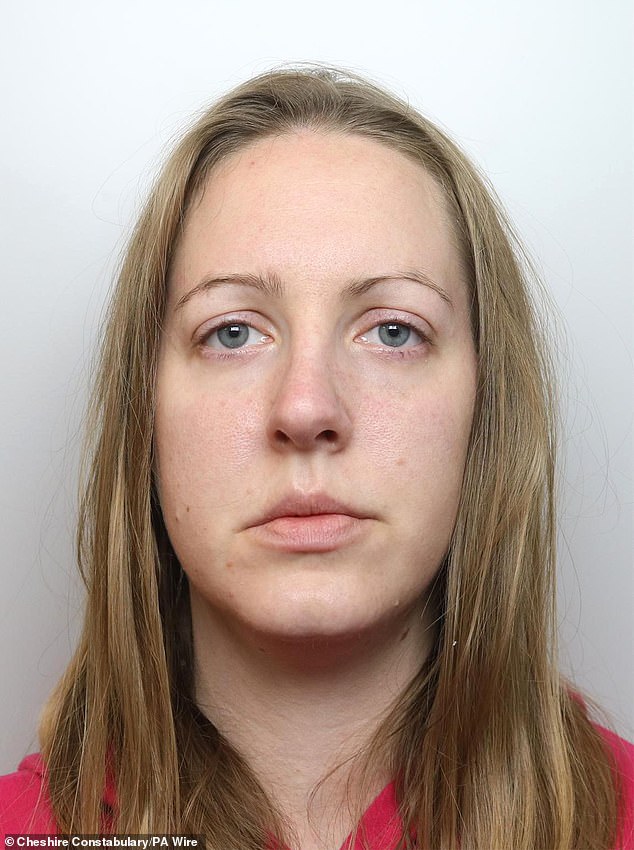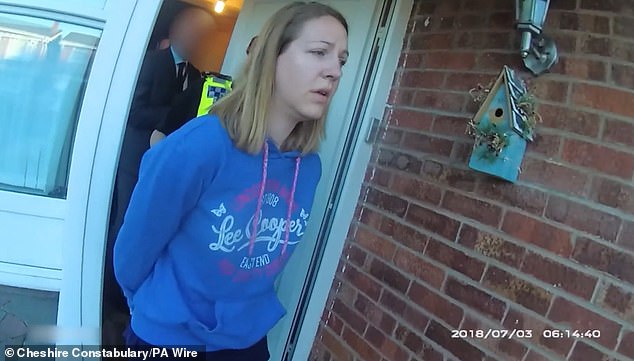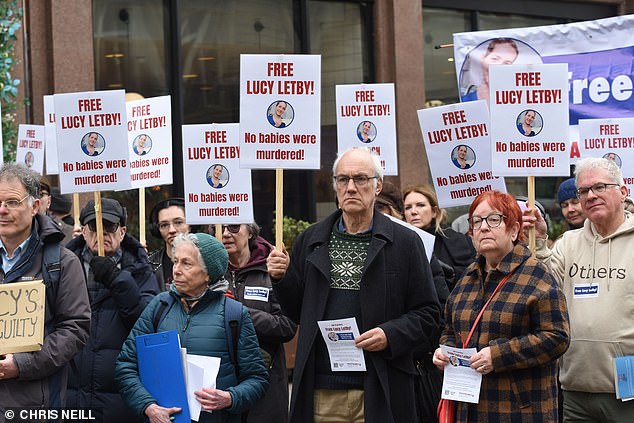A year ago, my views on Lucy Letby were like pretty much everybody else’s in Britain.
It seemed clear from reports of her trial that this woman had killed seven helpless infants and betrayed the trust vested in her by the hospital, the families and by decent society.
I had no issue with the vilification of her by the Press, and I certainly thought a lifetime in prison was the punishment she deserved for such heinous crimes.
But then I read a 13,000-word article in the New Yorker magazine that raised serious concerns about Letby’s trial. A court order made this unavailable to UK readers, which seemed inconsistent with open justice, so I questioned the restriction in Parliament.
Immediately, my inbox was flooded by leading statisticians, neonatal specialists, forensic scientists, legal experts and those who had served at the Countess of Chester Hospital and were afraid to come forward.
The experts included past presidents of the Royal Statistical Society and the Royal College of Paediatrics and Child Health – people more knowledgeable than the purported experts whose evidence convicted Letby.
They were concerned by what they perceived as the false analyses and diagnoses used to persuade a lay jury to convict her.
Undoubtedly, the continued speculation on this case will be distressing for the babies’ families, but they, more than any of us, deserve the truth.

I had no issue with the vilification of Lucy Letby by the Press, and I thought a lifetime in prison was the punishment she deserved – then I read a 13,000-word article in the New Yorker magazine that raised serious concerns about Letby’s trial, writes David Davis MP

Lucy Letby, 35, was convicted of murdering seven babies and attempting to murder eight more

Lucy Letby being arrested at her home in Chester on July 3, 2018
So I spent three months finding out for myself, initially reading the account of every day of the trial, but eventually getting my hands on the bulk of the court transcripts from the original trial.
When I came across an issue where my scientific knowledge was inadequate – I am a molecular scientist but not a doctor – I sought specific high-level expert and impartial advice.
I do not take on miscarriage of justice cases lightly; they can take years and are often painful for everybody involved. So I went through every conviction. I was looking for one where Letby was clearly guilty beyond reasonable doubt. In my view, there was none.
Since then, the prosecution case has fallen to pieces bit by bit.
Bogus statistical arguments have been exposed. Weak expert evidence has come under irresistible pressure. And a picture has emerged of a unit with poor medical management that very probably contributed to, or even caused, the deaths of a number of these babies.
Last month, Letby’s defence team delivered a tsunami of fresh evidence to the Criminal Cases Review Commission (CCRC), the body reviewing her case. The deluge included 23 reports from 24 experts from eight countries.

Protestors in support of Letby gathered at Liverpool Town Hall in March as the Thirwall Inquiry approached its later stages
The evidence demolishes the prosecution’s case against Lucy Letby. One report, 698 pages long, containing the conclusions of 14 leading neonatal experts, concludes that ‘there was no medical evidence to support malfeasance causing death or injury in any of the 17 cases at the trial’.
These experts were convened by Dr Shoo Lee, author of a 1989 paper that played a substantial role in persuading the jury at the original trial that Letby had injected air into babies’ veins.
Dr Lee has since been clear that his paper was misrepresented in court, and has been at the forefront of attempts for Letby’s case to be heard again.
At a press conference I chaired on February 4, he declared that, in his opinion, far from being murdered, the babies died from either natural causes or poor medical care.
He, like many experts involved in this case post-trial, is working pro bono in pursuit of the truth. And with alarming regularity, revelations destabilise the progressively implausible case holding up Letby’s conviction.
Last month, it was the discovery that one of the four doctors who initially accused Letby almost certainly misled the jury. According to the trial testimony of Dr Ravi Jayaram, Letby had not raised the alarm when Baby K was in difficulty.

At a press conference I chaired on February 4, he declared that, in his opinion, far from being murdered, the babies died from either natural causes or poor medical care, writes David Davis
Dr Jayaram discovered the baby’s oxygen levels had plummeted because her breathing tube was dislodged, after, by chance, walking into the room where Letby was alone with the baby and apparently doing nothing to help.
Yet in a recently revealed email he had sent after the death, he said that Letby had called the doctor for help. Letby’s lawyers did not find out about this email until September last year.
I concluded some time ago that Lucy Letby is almost certainly innocent. A large proportion of the country is now coming to the same conclusion.
In this case the old adage ‘justice delayed is justice denied’ is certainly true. Justice delayed will deny this young woman some of the most important years of her life. This case demands a retrial, the CCRC must act quickly and a referral should be in months, not years.







